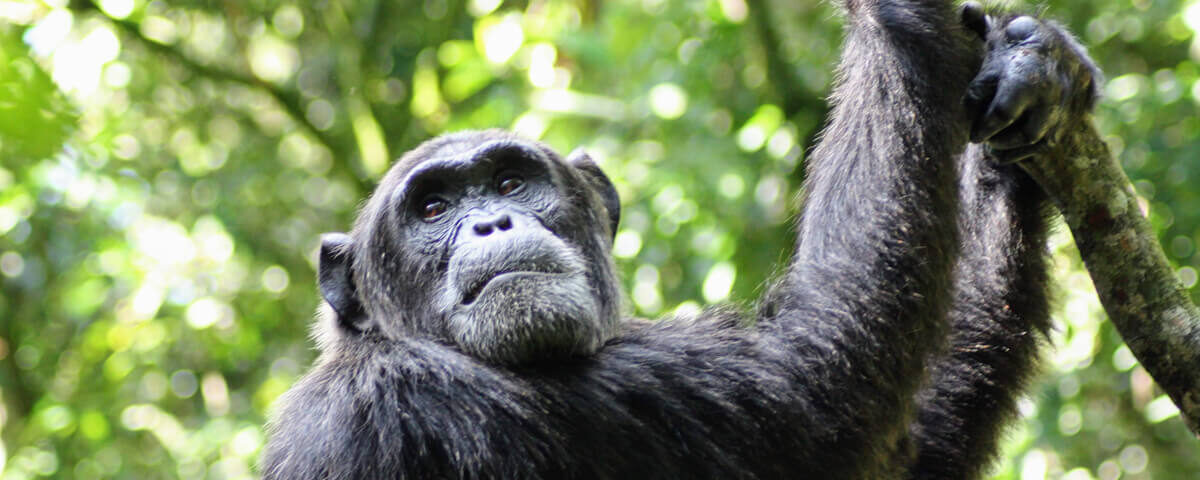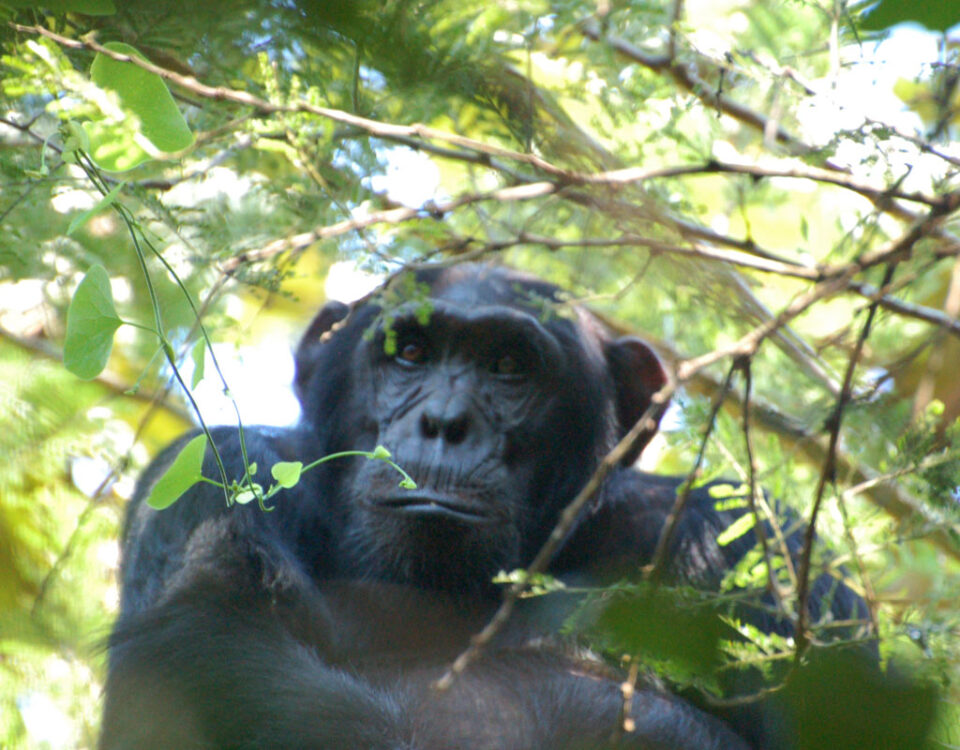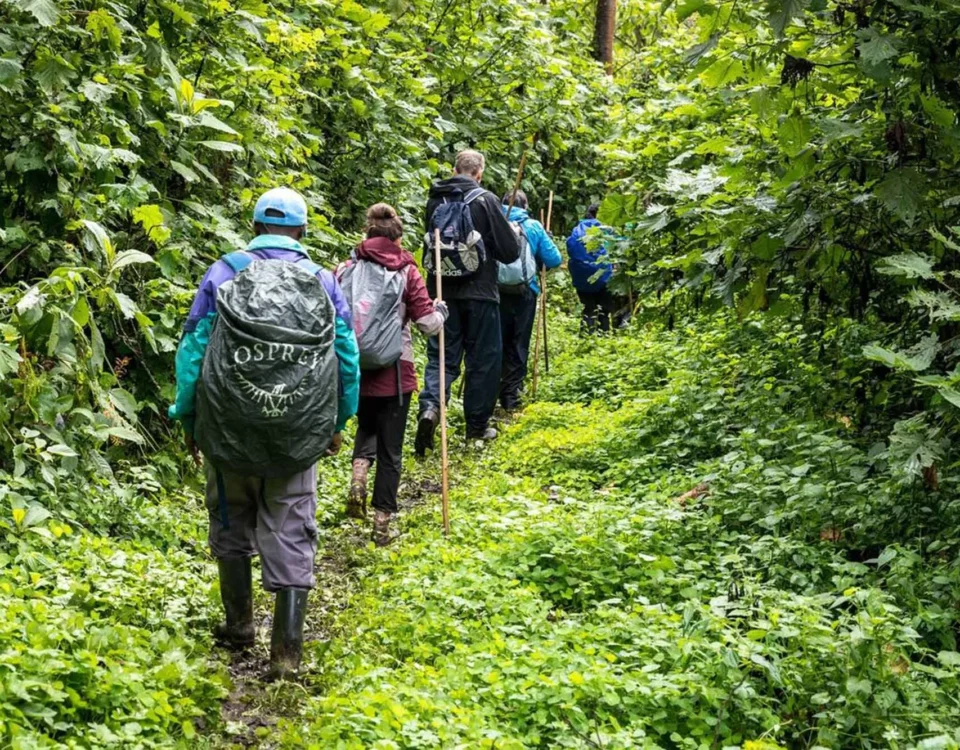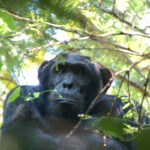
Can I See Chimpanzees Year-Round in Rwanda?
March 17, 2025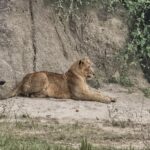
Where is Queen Elizabeth National Park Located?
April 2, 2025What Should I Bring for Chimpanzee Tracking in Rwanda?
What Should I Bring for Chimpanzee Tracking in Rwanda? Rwanda, often referred to as the “Land of a Thousand Hills,” offers some of the most extraordinary wildlife experiences in Africa, including the chance to track chimpanzees in their natural habitat. While many travelers come to Rwanda for the iconic mountain gorillas, chimpanzee tracking in Nyungwe National Park is an equally thrilling adventure.
These highly intelligent primates are closely related to humans, and spending time with them in the wild is a profound experience. However, chimpanzee trekking in Rwanda is not a walk in the park—literally. It requires careful preparation and the right gear to ensure your safety, comfort, and an optimal wildlife experience.
If you’re traveling with Jackal Adventures Ltd., a reputable tour operator that specializes in unique wildlife experiences, it’s important to know what to bring for chimpanzee tracking. In this guide, we’ll walk you through everything you need to pack for your trek through Nyungwe National Park, ensuring you’re fully equipped for this unforgettable adventure.
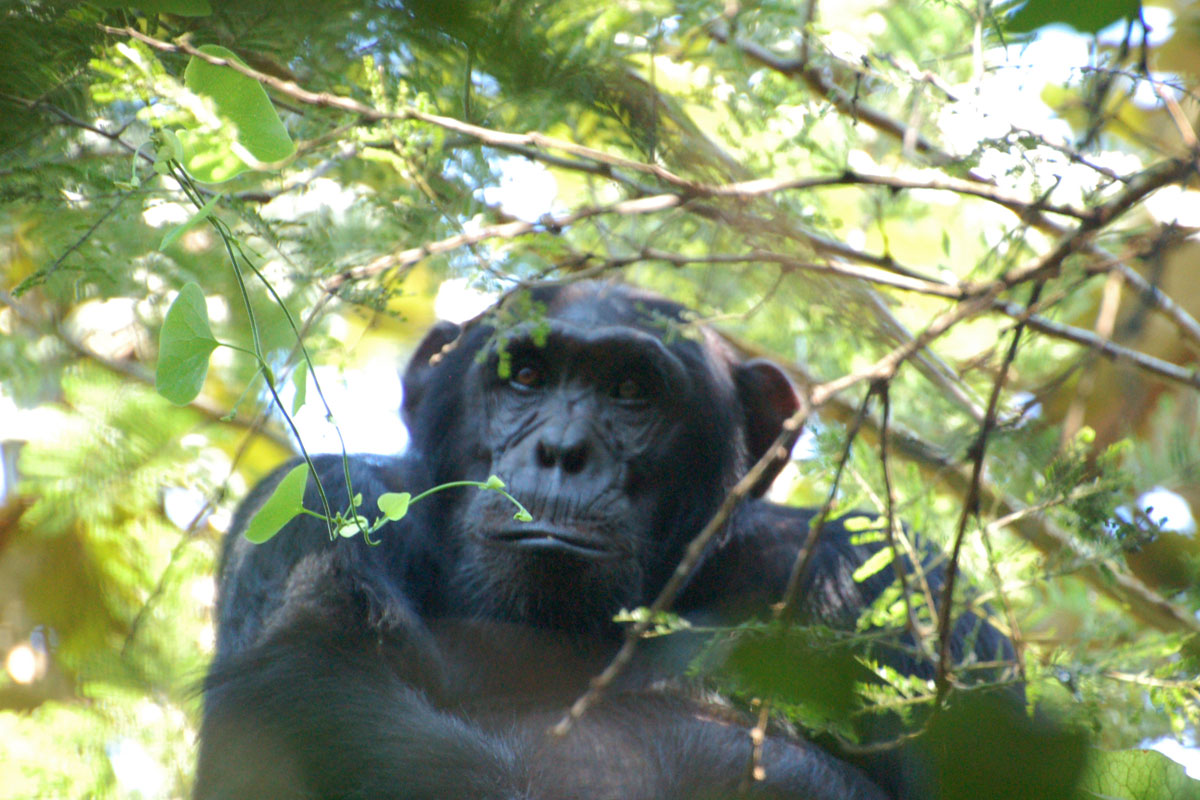
Chimpanzee Tracking in Rwanda
Trekking Boots: The Foundation of Your Trek
One of the most important items for chimpanzee tracking is a good pair of trekking boots. The terrain in Nyungwe National Park is rugged, steep, and often muddy, especially during the rainy season. Sturdy, waterproof boots with ankle support are essential to provide comfort and protection throughout the trek. Jackal Adventures Ltd. recommends boots that have a good grip to prevent slipping on wet or rocky paths.
Make sure that your boots are broken in before the trek, as new shoes can cause blisters. A comfortable, well-fitted pair of boots will help you focus on the experience instead of worrying about foot pain.
Lightweight, Quick-Drying Clothing
Rwanda’s climate is tropical, with high humidity and sudden rain showers, so it’s important to wear clothing that is both lightweight and moisture-wicking. Long-sleeved shirts and pants are essential to protect your skin from the forest’s dense undergrowth, thorny bushes, and insect bites. While it might be tempting to wear short sleeves and shorts, you’ll want to avoid exposing your skin to potential scratches and insects, including ticks, which are common in the region.
Look for clothes made from quick-drying fabrics, such as synthetic materials or merino wool, that will keep you comfortable even if you get wet during the trek. Jackal Adventures Ltd. recommends layering, so you can easily adjust your clothing as the temperature changes during your hike. The weather in the forest can fluctuate, with chilly mornings giving way to warmer midday temperatures, so layers are key.
Rain Gear: Be Prepared for the Elements
Rwanda is known for its frequent rain showers, particularly in Nyungwe National Park, which is a tropical rainforest. It’s essential to pack quality rain gear to protect yourself from the rain and mud. A lightweight, waterproof jacket is a must-have. Ensure that it’s breathable, so you don’t overheat during the trek.
A good rain poncho or a waterproof cover for your backpack can also be useful to keep your belongings dry. Jackal Adventures Ltd. will often provide advice about the current weather conditions before you set out, but it’s always best to prepare for the possibility of rain.
Insect Repellent and Sunscreen
While the dense forest provides plenty of shade, you’re still at risk of sun exposure, especially during midday. Sunscreen with a high SPF is necessary to prevent sunburn. Apply it generously to your face, neck, arms, and any exposed areas of skin before you start the trek.
In addition to sunscreen, insect repellent is crucial to ward off mosquitoes, which can transmit diseases like malaria, as well as other biting insects. Jackal Adventures Ltd. recommends using a repellent that contains DEET or picaridin for maximum protection. Be sure to reapply it throughout the day, especially after sweating or wiping your face.
Water Bottle and Snacks
While trekking through Nyungwe, it’s easy to work up a thirst, especially in the warm, humid environment. It’s important to stay hydrated, so make sure to bring a reusable water bottle that you can refill along the way. Jackal Adventures Ltd. advises trekkers to carry a 1.5-liter bottle of water, and many guided tours will also have refill stations at key points along the trail.
In addition to water, it’s a good idea to bring some light snacks such as granola bars, fruit, or nuts to keep your energy levels up. Trekking can be physically demanding, and quick snacks can help you power through the more challenging parts of the hike.
Camera or Smartphone for Photos
Chimpanzee tracking provides some of the best opportunities for wildlife photography, so it’s highly recommended to bring a camera. However, because the trekking can be physically demanding, you’ll want to keep your camera equipment lightweight and easy to carry. A DSLR with a zoom lens is ideal for capturing close-up shots, but if you prefer something more compact, a smartphone with a good camera will also work well.
If you’re using a smartphone, make sure you have a power bank or extra battery to avoid running out of charge. The forest environment can be unpredictable, and you’ll want to capture the moments when you spot these incredible primates.
Binoculars for Viewing and Observation
While chimpanzees are often found in the trees, they are highly mobile and may also be on the forest floor. For a more immersive experience, binoculars are a great tool for observing their behavior from a safe and respectful distance. Jackal Adventures Ltd. provides expert guides who are well-versed in the behavior of chimpanzees, but having binoculars allows you to appreciate the subtle details, such as their interactions, facial expressions, and communication with each other.
Having a pair of lightweight, compact binoculars can enhance your chimpanzee tracking experience and make it even more rewarding.
Small Backpack or Daypack
A small, comfortable backpack is essential to carry your essentials. Choose a daypack that is large enough to fit your water, snacks, camera, insect repellent, sunscreen, and other necessities but not so large that it becomes cumbersome during the trek. Jackal Adventures Ltd. often provides detailed recommendations on what to carry, but the key is to keep it light and practical. A pack with padded shoulder straps will ensure you stay comfortable, even on longer treks.
Personal Identification and Permits
Chimpanzee trekking in Rwanda requires a special permit, which is arranged through your tour operator or directly with Rwanda Development Board (RDB). Always carry your trekking permit and any relevant identification with you. Jackal Adventures Ltd. handles these arrangements for you, but it’s important to ensure that you have the necessary documents on hand when meeting your guide and entering the park.
A Positive Attitude and Respect for Wildlife
Finally, while not an item you pack in your bag, bringing a positive attitude and a deep respect for the wildlife and nature is vital. Chimpanzees, like all wild animals, deserve to be observed from a distance without disruption. Jackal Adventures Ltd. emphasizes ethical wildlife viewing, ensuring that trekkers are educated on how to behave during encounters with chimpanzees to minimize stress and disruption to their natural behavior.
Chimpanzee Tracking in Rwanda
Conclusion: Preparing for Your Chimpanzee Trekking Adventure
Chimpanzee trekking in Rwanda is an awe-inspiring adventure that requires careful preparation. By bringing the right gear—such as sturdy trekking boots, rain gear, insect repellent, a camera, and a positive attitude—you ensure that you have the best possible experience while respecting the natural habitat of these remarkable primates. Jackal Adventures Ltd. is dedicated to ensuring that every trekker is fully equipped and ready to enjoy this incredible journey through Nyungwe National Park. Whether you are trekking during the dry or rainy season, proper preparation will make your chimpanzee trekking experience in Rwanda unforgettable.


